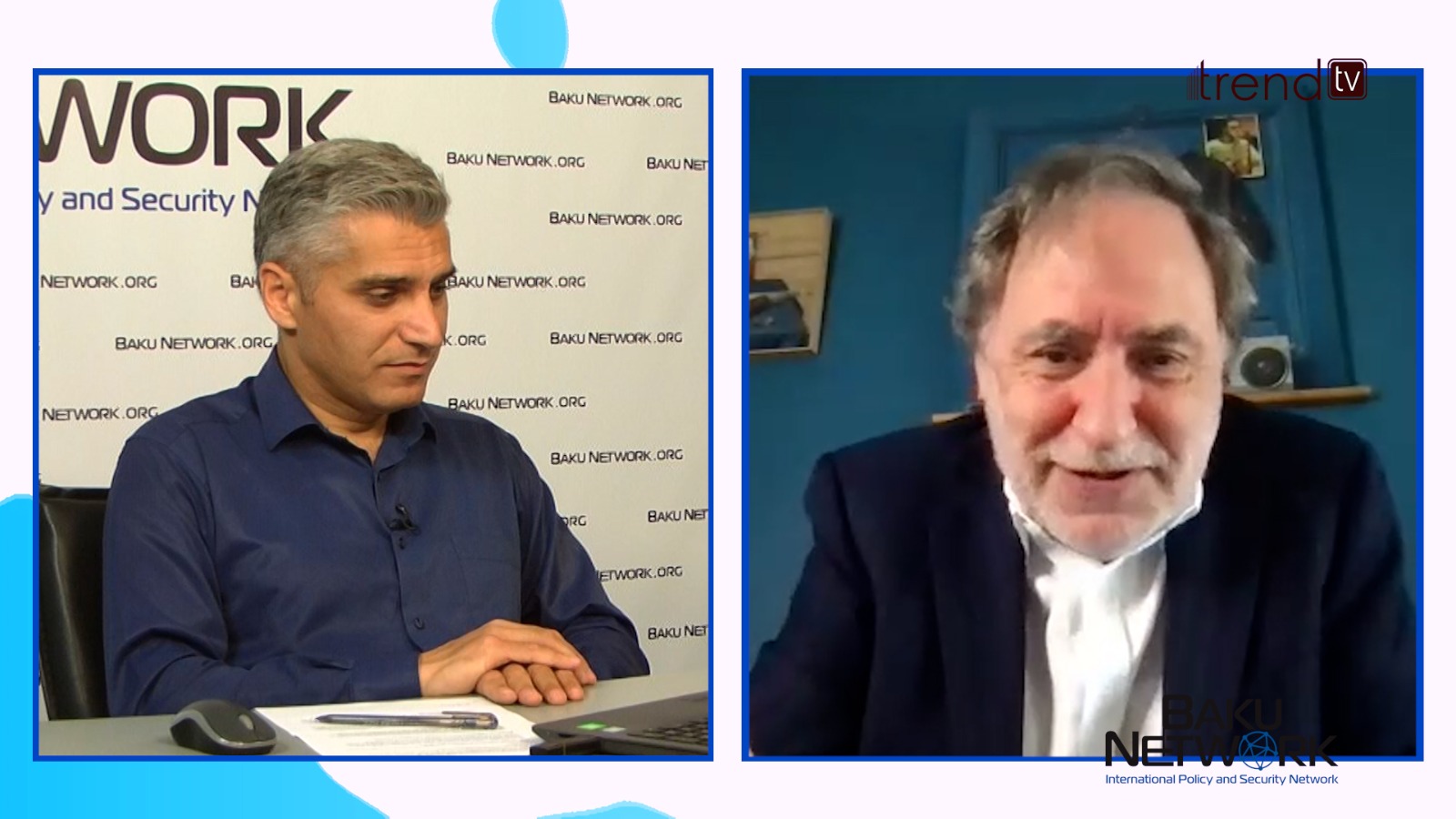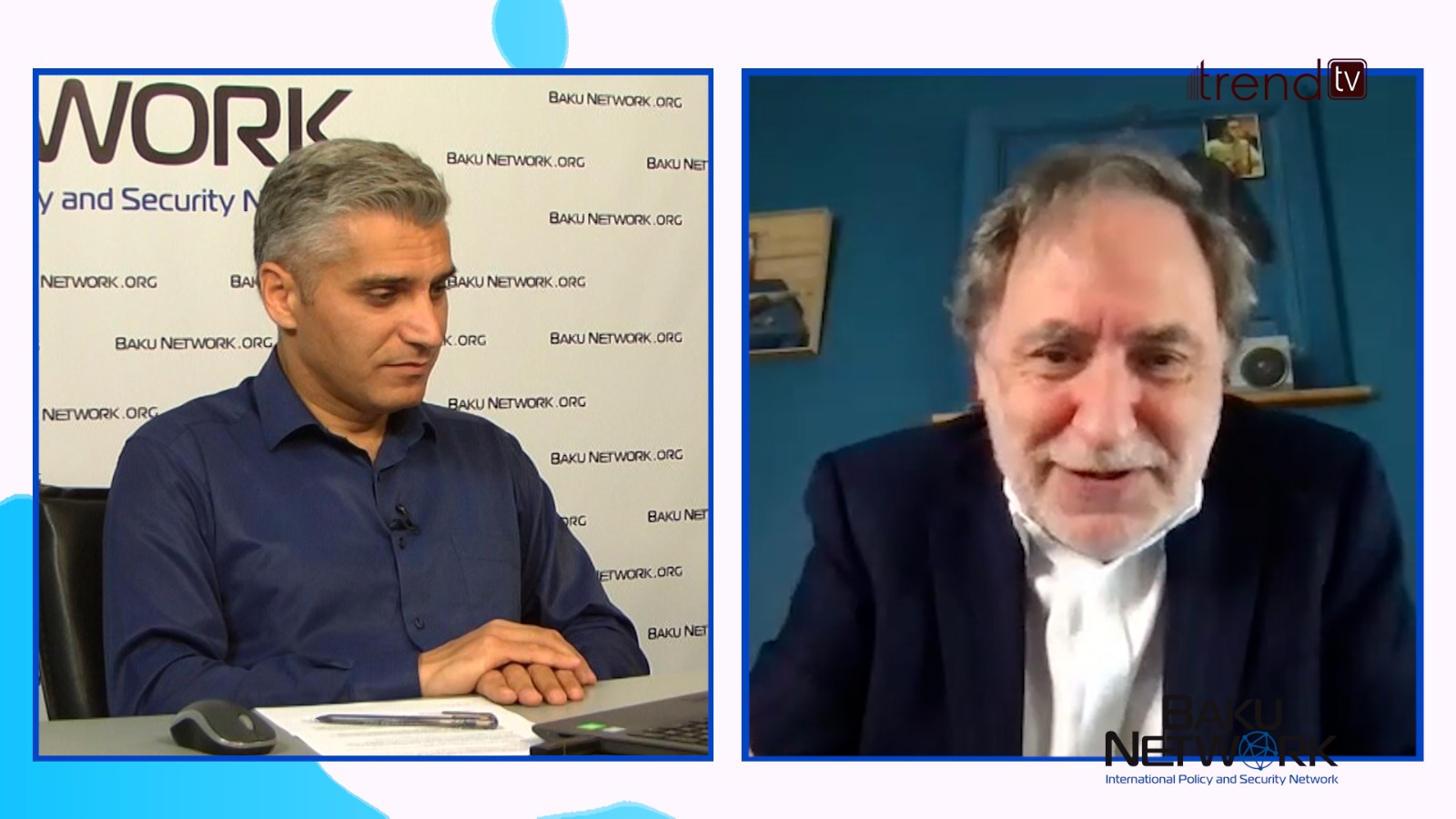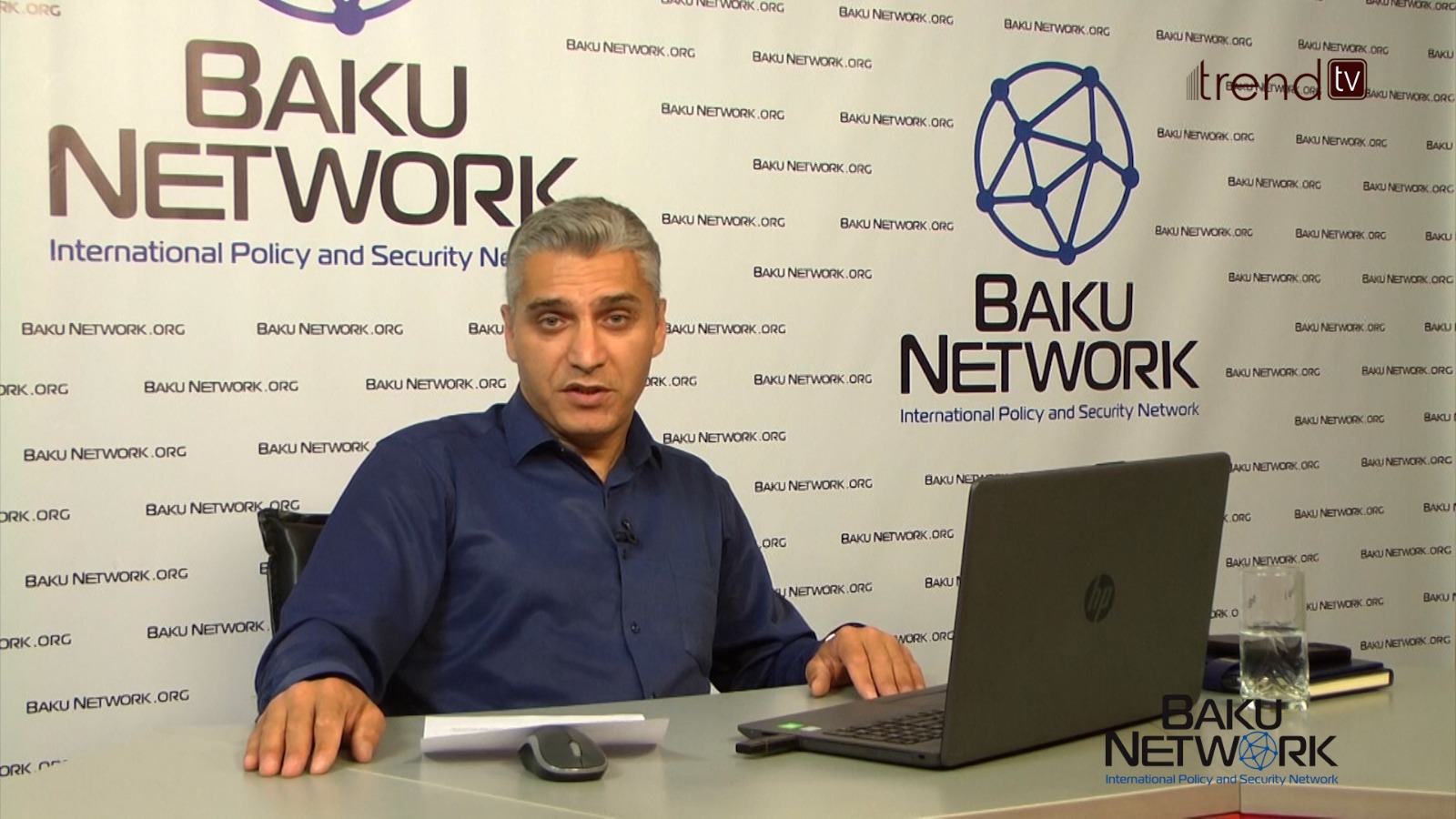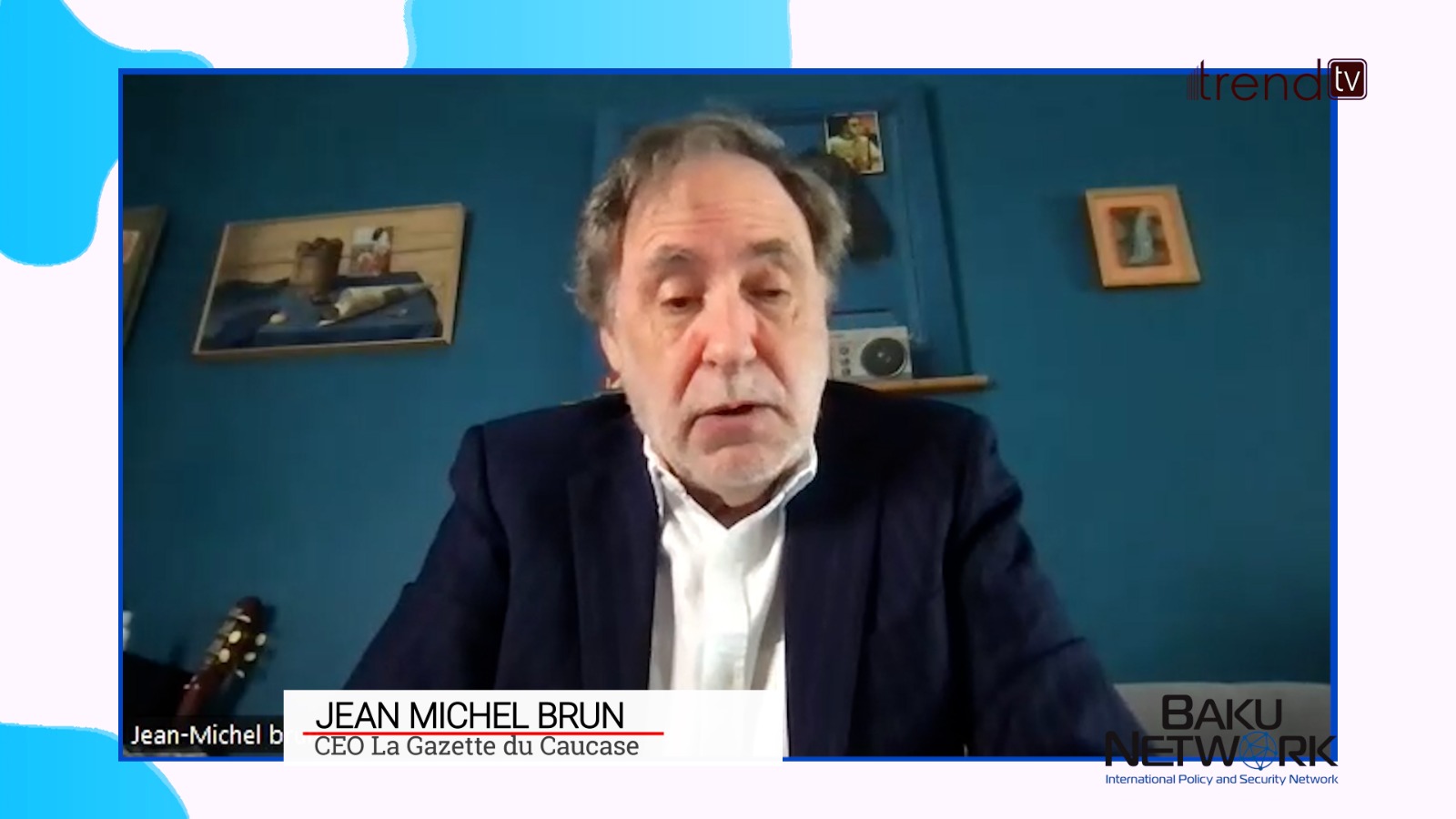BAKU, Azerbaijan, June 4. In a recent episode of Real World Order, a political show by the Baku Network think tank, host Elnur Enveroglu sat down for a blunt and wide-ranging talk with Jean-Michel Brun, Editor-in-Chief of La Gazette du Caucase, and Muslims in France.
The conversation offered a rare inside look at what Brun sees as France’s misguided foreign policy in the South Caucasus, which he called “a series of shortsighted moves wrapped in political showmanship and ideological confusion.”
Brun’s main point was pretty clear: France and Azerbaijan used to have strong ties — in energy, the environment, transportation, agriculture — but things fell apart after the Second Karabakh War. He believes this breakdown didn’t have to happen and that it’s actually hurting France more than helping it.
“France didn’t just turn on Azerbaijan out of nowhere,” Brun said. “It’s a direct result of Macron letting short-term politics at home and a tilt toward far-right ideas guide his foreign policy.”
Unlike past leaders like Charles de Gaulle or Jacques Chirac, Brun argues, Macron doesn’t seem to have a clear long-term vision. Instead, he’s taken a more opportunistic route, aligning himself with nationalist views that romanticize France’s colonial history and cast modern conflicts as clashes between civilizations.
This shift, Brun pointed out, has led to France openly siding with Armenia — a move he says is heavily influenced by the country’s Armenian diaspora. Around 800,000 Armenians live in France, mainly in cities like Paris, Marseille, and Lyon. “They’ve invested a lot not just in lobbying, but in shaping media and academic circles,” Brun said. “That’s changed the public story around the Armenia-Azerbaijan conflict in a big way.”
He believes this influence has been used to frame the conflict as a religious one, casting Armenia as a Christian stronghold under threat — a narrative he called “dishonest and dangerous.”
Meanwhile, France’s Muslim population — about 13 million — hasn’t had the same kind of impact. Brun says it’s not just about numbers, but about how organized and present a community is in politics and media. “The Armenian diaspora has made itself heard. That matters.”
Brun said this political shift is already backfiring. French companies are missing out on big opportunities in Azerbaijan’s post-war rebuilding, especially in cities like Agdam, Shusha, and Fuzuli. While firms from the UK and Italy are involved in construction and infrastructure, French giants like Bouygues and Vinci have been left out.
“Business leaders in France are frustrated,” Brun said. “There’s money being poured into these projects, but France isn’t part of it — and there’s no good reason for that.”
He also pointed to how France has handled recent tensions with Azerbaijan. Two incidents involving French nationals — one accused of spying, the other of vandalism — triggered a strong response from Paris, which leaned heavily on human rights talk. But Brun says the government ignored the provocative behavior of its own politicians and pro-Armenian activists. “This isn’t thoughtful diplomacy,” he said. “It’s just symbolic politics getting in the way of real strategy.”
Still, Brun thinks Macron could change course if the geopolitical winds shift. With France losing ground in Africa and the Mediterranean, Macron might look to Azerbaijan to regain some influence. “There’s growing awareness in Paris that Armenia isn’t a strong partner,” Brun said. “Its economy is weak, and it doesn’t carry much strategic weight. Azerbaijan, on the other hand, is becoming a major energy player and a force for regional stability. That’s the kind of partner France should be looking for.”
Brun also mentioned opportunities in areas like education, farming, infrastructure, and culture. Even with all the political noise, he said, French culture is still respected in Azerbaijan — a soft-power asset France hasn’t really used. “There’s still a chance to fix things,” he said. “But that chance won’t last forever. France has to choose: keep playing political games at home or get back to serious foreign policy.”
As France tries to rethink its role on the world stage amid energy challenges and a more competitive global landscape, what it does in the South Caucasus might end up being a big test. And the message from Baku is clear: symbolism won’t get you far — real partnerships will.













